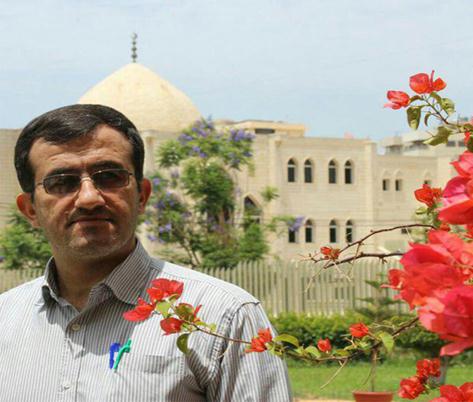Memory Writing Road Is Slippery, Please Be Careful!
Hamid Ghazvini
Translated by Ruhollah Golmoradi
2018-9-22
One of the harm that has always threatened profession of memory writing and oral history is simplistic and carelessly approach to "interview" as the most fundamental part of oral history.
In recent years, with growth of mass media and expansion of cyberspace and increasing interest in historical subjects, we are witnessing activity of the media (written and digital) that through poorly conducted interviews, which apparently are aimed at disseminating unconsidered or less-known memories and information about contemporary history, a wave of misleading, sometimes incorrect and inaccurate contents leads to minds and eyes of the audience.

These interviews often suffer from a variety of injuries, due to scientific and professional weakness of interviewers. For example, sometimes after passing time and variety of events, the narrator mistakes unconsciously in chronology or exact expression of a memory that the interviewer must make him realize about his/her mistake, and because he/she lacks the least information in that field skirt around subject and neglect a gross error; it results in creating a misleading and incorrect document that if no one notice it, it will have irreversible consequences and if they recognize the narrator's error, they would surely have an incorrect judgment about him/her and all his/her narratives.
Also, in some cases because of weak memory of the narrator, many memories are forgotten that the interviewer should help him/her, but ignorance and inability of the interviewer prevents doing so.
In addition, we often see some questions that are basically false and distort the narrator and audience. For example, it is asked, "How was Mr. X behavior with Marxist groups in the Qasr prison?" While the person was not in prison at the time and the narrator had been with him in another prison. Or it is said, "Why was Mr. X in opposition group regarding to story of investigating lack of competence of Abolhasan Bani-Sadr?" while the referred person was not at that time in Parliamentary at all. Or it is asked, "Why was commander of X military command opposed to X operation?" while the person at that time did not have such a responsibility and served elsewhere.
In fact, such mistakes indicate a simplistic look at interview and lack of accountability in producing a historical document.
Interestingly, the same people in their interviews discuss issues and events from the past that in many of them irresponsibility are criticized and reviewed, but they themselves do not act responsibly about what they are doing. Repetition of these errors will, after all, reduce position of such individuals and programs and lead to distrust of the audience.
It should remind of the friends that road of memory writing and oral history is slippery, there is a risk of reversal and falling down, please be careful and move in safe speed.
Number of Visits: 4406








The latest
Most visited
How to send Imam's announcements to Iran
In the first part, the issue of funds, Hajj Sheikh Nasrallah Khalkhali - who represented most of the religious authorities - was also the representative of Imam. In Najaf, there was a money exchange office that cooperated with the money exchange offices in Tehran. Some of the funds were exchanged through him.Operation Beit al-Moqaddas and Liberation of Khorramshahr
After Operation Fat’h al-Mobin, we traveled to Kermanshah and visited Sar-e-Pol-e-Zahab before heading to Ilam. During Operation Beit al-Moqaddas, the 27th Brigade was still receiving support from the West. We maintained contact with individuals who had previously worked in Area 7 and were now leading the brigade. It was through these connections that I learned about Operation Beit al-Moqaddas.Memoirs of Hujjat al-Islam Reza Motalebi
Hujjat al-Islam Reza Motalebi is a cleric from Isfahan. Before the revolution, he was the imam of the Fallah Mosque – which was later renamed Abuzar Mosque. By his presence and efforts, Abuzar Mosque soon became a base for supporters of the Imam and the revolution. After the victory of the revolution, he played a role in uniting forces and maintaining political vitality in southwest Tehran.The Necessity of Receiving Feedback in Oral History
Whenever we engage in a task, we naturally seek ways to evaluate our performance — to correct shortcomings and enhance strengths. Such refinement is only possible through the feedback we receive from others. Consider, for instance, a basketball player whose shots are consistently accurate; should he begin shooting blindfolded, his success rate would rapidly decline, as he would be deprived of essential feedback from each attempt.

